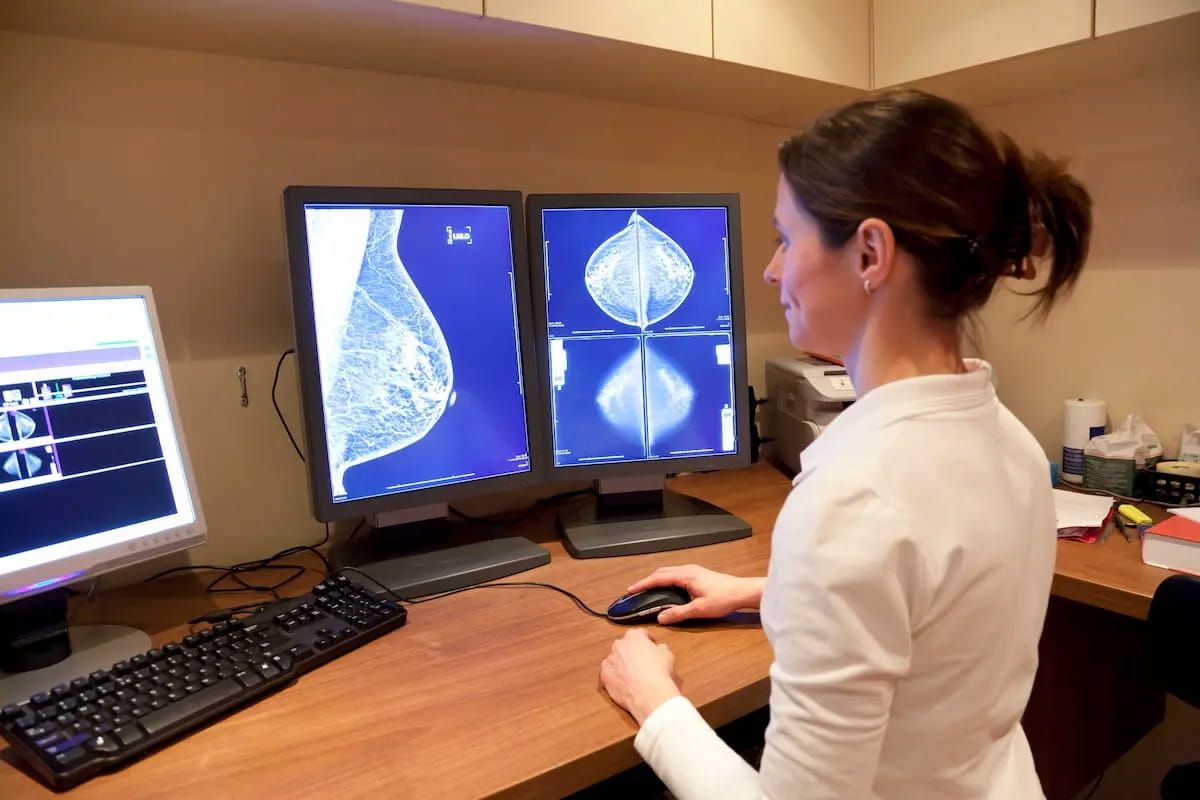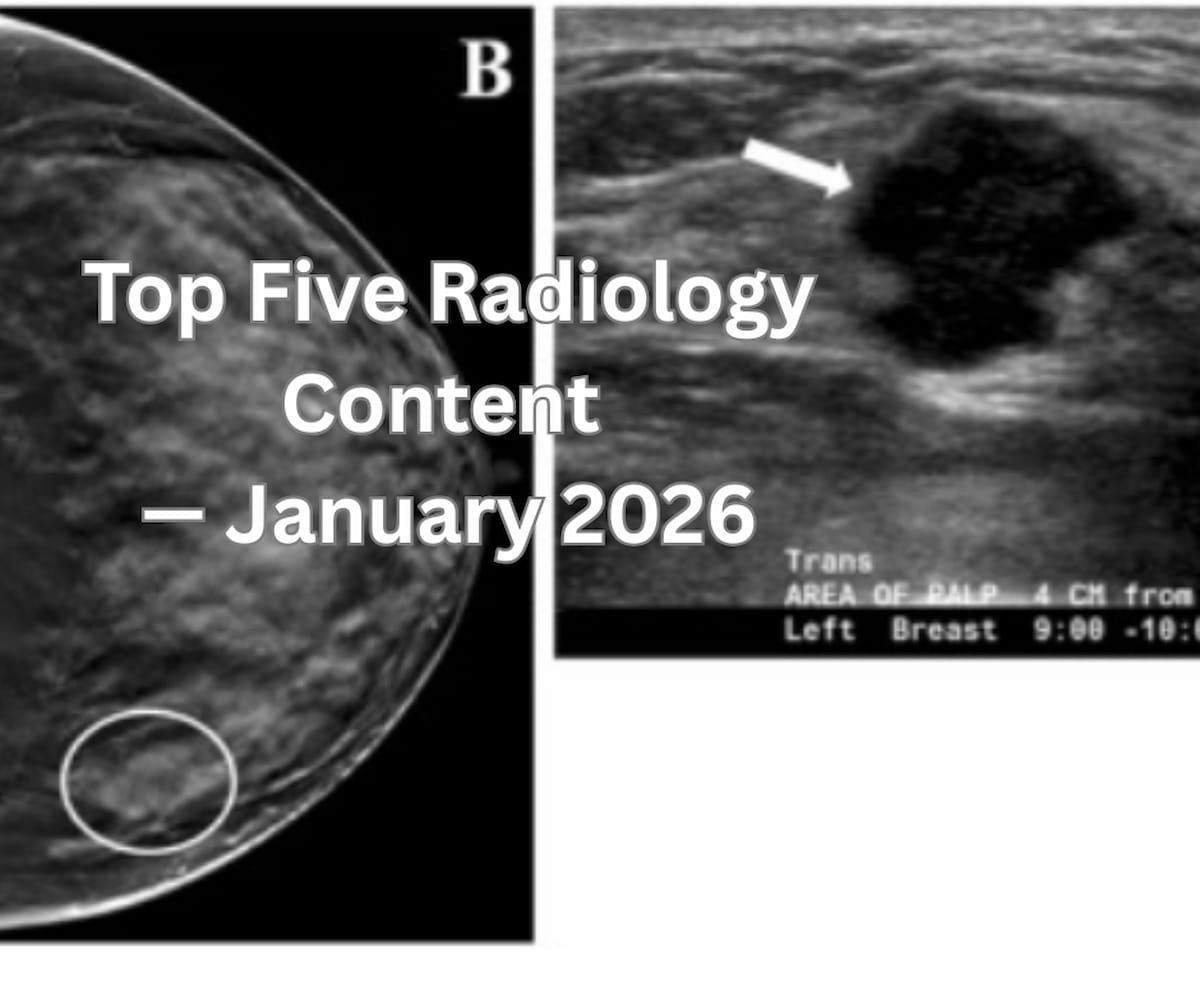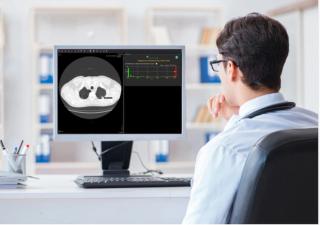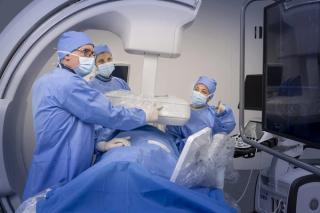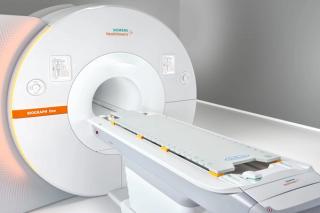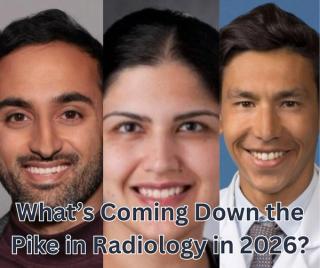
Technology
Latest News
Latest Videos

Shorts










Podcasts
CME Content
More News

Catch up on the top AI-related news and research in radiology over the past month.

Catch up on a variety of new FDA clearances in radiology from the past week.
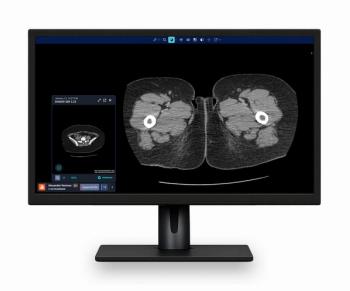
Geared toward facilitating earlier detection and efficiencies in emergency department workflow, the AI triage software reportedly has 11 newly cleared indications.

In a recent interview, David Yankelevitz, M.D., discussed the recent FDA clearance of the AI-CVD multisystem screening software and the ongoing evolution of incorporating computed tomography into personalized screening and risk assessments.
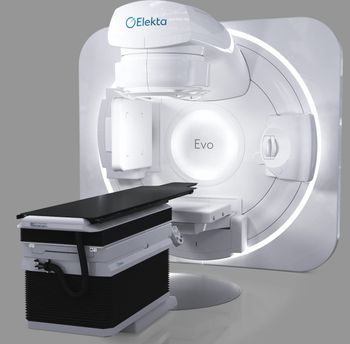
Incorporating AI to reduce artifacts and bolster soft tissue contrast, the Elekta Evo CT-Linac system reportedly improves detection of tumors and organs-at-risk.

Catch up on the top radiology content of the past week.

In a recent interview, Rajesh Bhayana, M.D., discussed pertinent findings from a new study examining the use of the large language model GPT-4o in facilitating protocoling for abdominal and pelvic CT exams.

In a recent interview, Ron Blankstein, M.D., discussed insights from a recent consensus statement from the American College of Cardiology on AI-enabled plaque quantification with coronary computed tomography angiography (CCTA) exams, and other pertinent considerations with the emerging technology.
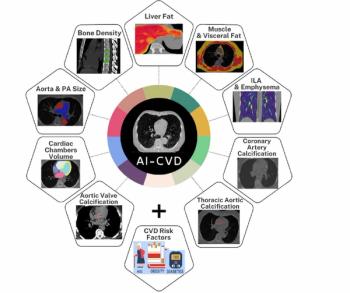
The AI-CVD software reportedly combines automated quantitative measurements for cardiovascular assessments such as coronary artery calcium (CAC) scoring and epicardial fat volumetry with lung attenuation and liver attenuation analysis in one CT-based AI platform.

Catch up on the top radiology content of the past week.
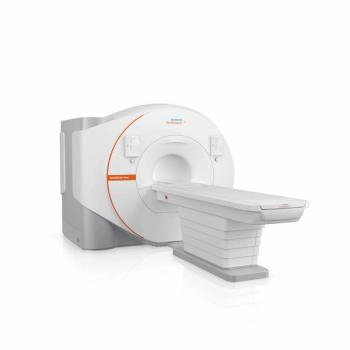
In addition to offering a variety of AI features, the Magnetom Flow 1.5T MRI system reportedly facilitates a 56 percent reduction in annual energy consumption in comparison to previous MRI scanners.
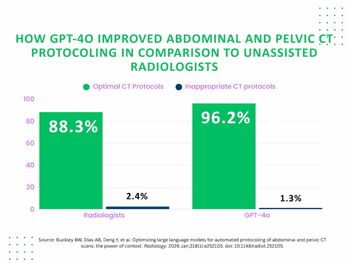
In a study involving over 1,400 patients who had abdominal or pelvic CTs, the large language model GPT-4o selected optimal protocols in 96.2 percent of cases in comparison to 88.3 percent for radiologists.
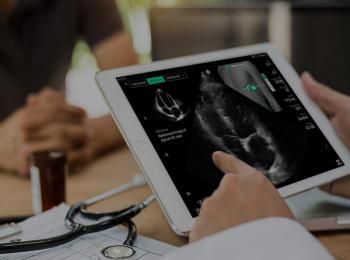
The Echo Stewardship Program, which allows non-sonographer clinicians to perform focused cardiac ultrasound exams under physician guidance, is now cleared for use across handheld, laptop and cart-based ultrasound platforms

In a recent interview, Jeremie Calais, M.D., Ph.D., discussed new research examining the prognostic capacity of PSMA PET parameters in predicting hematologic toxicity and outcomes for patients treated with (177Lu)Lu-PSMA-617 for mCRPC.
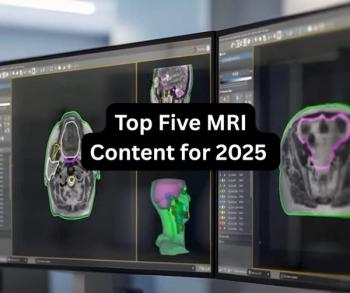
Catch up on the most well-viewed MRI content from 2025.

Catch up on the most well-viewed video interviews in December 2025.

Catch up on the most well-viewed radiology content from 2025.
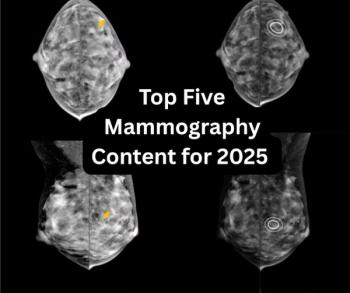
Catch up on the most well-viewed mammography content from 2025.
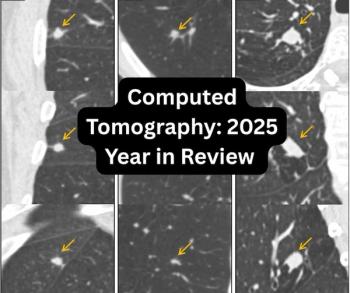
From controversial research on radiation-induced long-term cancer risks with computed tomography (CT) scans and the emerging prognostic value of AI-enabled plaque quantification to the potential impact of deep learning and AI-enhanced radiomics in thoracic radiology, here is a look back at the most well-viewed CT content from 2025.
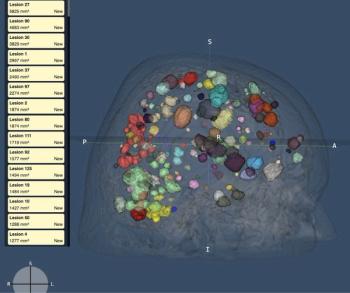
The cloud-based Brain Mets software reportedly provides accelerated detection, measurement and tracking of metastatic brain lesions based on routine brain MRI sequences.

Catch up on the top AI-related news and research in radiology over the past month.

Catch up on the most well-viewed video interviews from 2025.
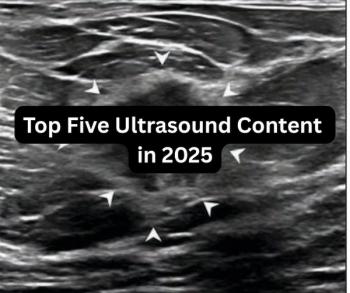
Catch up on the most well-viewed ultrasound content from 2025.

Catch up on the top radiology content of the past week.

Catch up on the top radiology content of the past week.



